Defending the Snowtown monsters: Mark Griffin QC reflects
Top barrister Mark Griffin QC will soon die from terminal cancer. But he granted SA Weekend an exclusive interview to reflect on his life – from defending a Snowtown killer to the humiliation of having to resign as a District Court judge.
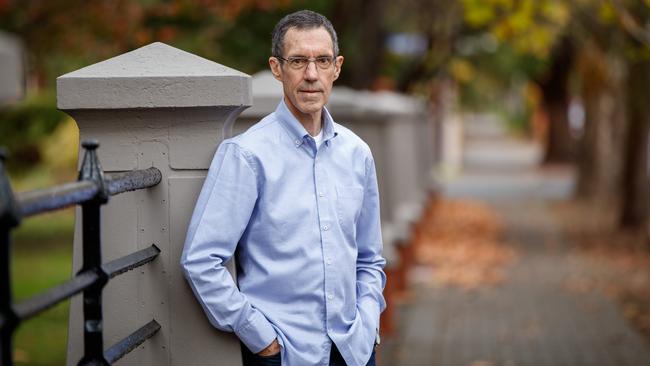
- Judge Griffin, the sex worker and the top secret inquiry
- Prizes, discounts, freebies: Check out the latest subscriber rewards
Mark Griffin has been near death once before.
In 2003, not long after completing the mammoth Snowtown trial in which he defended the lead killer, John Bunting, he began to succumb to a chronic auto immune liver illness that first emerged in his 20s.
It manifested like hepatitis and was kept at bay with medication until near the end of the Snowtown trial when he felt unwell and developed a cough.
He saw a specialist who confirmed his liver was scarred and losing function.
He was put on an organ transplant list and took medication that allowed him to limp along while becoming progressively more unwell through 2005, hoping a donor would materialise in time.
In 2006 – he can’t reveal the date to protect donor privacy – he got the call.
It was late on Sunday night, after 10.30pm, and for the previous six months he had carried a pager and kept himself to within an hour of Flinders Medical Centre.
“I remember saying quite vividly, ‘Oh shit, Nicole, is this the call?’. She said, ‘Yes Mark, this is the call, there is an organ available and you need to come in straight away’,” he says.
Leaving his young son Matthew, who was four, with his mother, Griffin and his wife Leslee walked down to the liver ward, through the darkened corridors past where sleeping patients lay. A group of specialist nurses were waiting and none of them knew who the transplant recipient would be.
As Griffin approached, there was an outburst of applause and the chief nurse stepped forward.
“She said, ‘Mark, we are delighted it’s you. We knew someone was coming in but didn’t know who it was. We know you’ve got a young one at home and we can’t wait to get you well again’,” Griffin says.
“It was just phenomenal. You’re put in a bed, have final tests, they heat you up with heated blankets.”
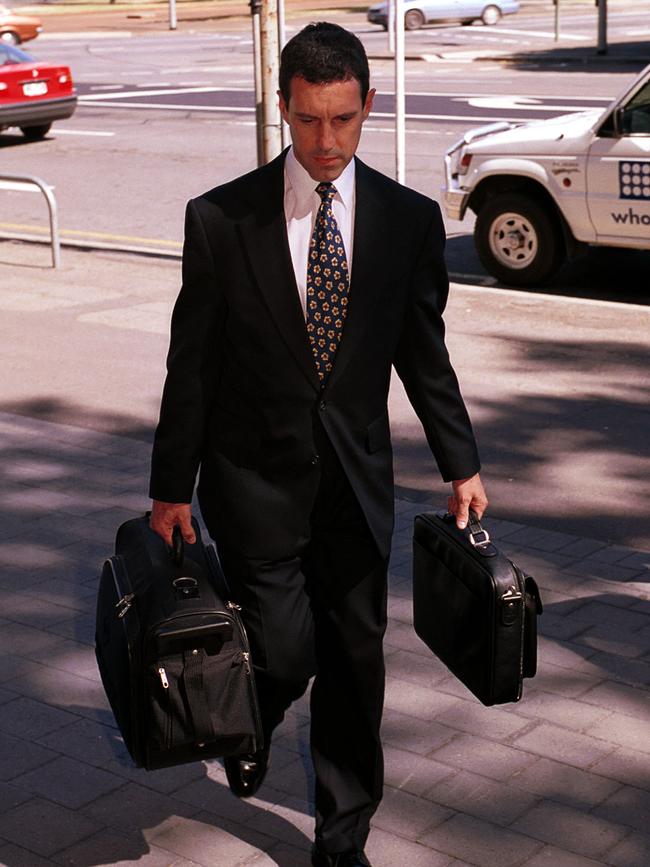
At three or four in the morning, two surgical teams were brought in; one to remove the donor organ, another to transplant it. It’s a long, complicated operation, more complex than a heart transplant, and the first thing Griffin knew was when he woke up in intensive care thinking, “I’m alive.”
Eight days later – he was trying to beat the seven-day record for discharge but there was a delay with his medication – he began a new life, starting half-time work a month later and three months after that was back to normal.
He learnt only later how close to death he was.
“I was going to clock off if that transplant hadn’t come in,” he says. “They told me after that, from the biopsies, I might have lasted another month.”
This time, he won’t be so lucky.
Now 62, Griffin has inoperable liver cancer and there will be no escape. Facing the end of his life, he wants to fill in a few gaps so the bad news won’t be all that people remember.
Always a controlled and private man, he wants people to understand that, despite it all, he has had a fortunate life. It gave him a career that he loves and a son, now 17, who means everything to him.
His resignation from the District Court bench in May 2012, in exceptional circumstances that still cause him huge embarrassment, was painful and cost him his marriage to Leslee, although they care for each other still.
They share parenting and she has been at his side during this illness.
“I still feel very fortunate,” he says. “You can always think of the downside but the way I look at it is I’ve lived a charmed life. When I was a young man I never expected to have a life that was this rewarding.”
Griffin’s father worked for an old-style bookie and on weekends would work out tote odds with paper and pencil.
During the week he was a clerk with a shipping company and Griffin remembers going down to the Port at night to get a bill of lading signed and finding the docks all lit up with wharfie gangs shouting and laughing.
At school, which was St Ignatius, Griffin was a good student but not great, although he was school captain and stood out at debating, which made him think the law might suit him.
His first job, working with the lawyer John Goldberg, brought him into contact with Michael Abbott, QC, a fierce criminal barrister and one of the legends of the South Australian bar.
He would frequently be lent to Abbott to do junior work.
“I was just a dogsbody but I got to work with Michael quite a lot,” Griffin says.
“You’ve never seen a man with so much energy; still has. He would know what to do, he would tell you what to do, he would never explain why, you had to try and figure it out. It was learning by osmosis and it was a great privilege to learn from such an excellent advocate.”
He says he had the sense to realise at some point that he would never be like Abbott, whose aggressive advocacy makes him an intimidating adversary.
He went his own way, developing a cool and dispassionate approach that was respectful, never familiar.
From the start he avoided casual conversations in court, the kind of laughter and chitchat among lawyers that dies away when the judge enters the room.
Even when courts weren’t in session, he held back because of the message he felt it sent to clients who might have everything at stake.
“(Chatting at the bar) communicates to other people that this is just my day job. Well, it is your day job but it is more than a job to the client, who needs to know you’ve given it everything,” he says.
His first taste of serious criminal law came after he joined a bigger firm, Elliston and Gilchrist, and started working with Marie Shaw who was his senior.
Together they did the von Einem case involving five murder charges brought in addition to the Richard Kelvin case for which von Einem was already convicted.
For Griffin, the case disproved the often-repeated urban myth that von Einem was at the heart of a notorious “family” of well-connected people said to be behind a series of homosexual killings in the 1970s and 1980s.
Griffin scoffs at the idea that von Einem, a book keeper for a pipeline supplies company at Dry Creek, was the sort of person who could ring a judge or a politician and invite them around for some fun.
“It was very interesting seeing there never was a ‘family’,” Griffin says. “It’s one of the myths of Adelaide and it was a term made up for a 60 Minutes story.”
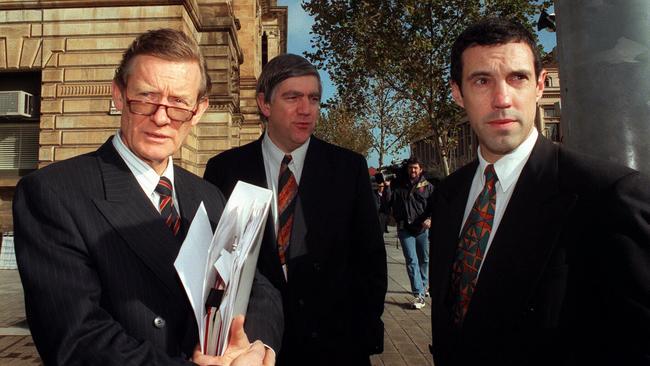
Griffin says many people were guilty of the same offence of drugging young people for non-consensual sex but they were grouped together only for sensationalism.
“‘The family’ didn’t exist,” he says.
After working overseas in the 1990s in a Boston public defender’s office for three years, Griffin returned to Adelaide.
It was a fork in the road decision made because his family, including two brothers and his mother, were in Australia.
He went to the Bar to become a full-time criminal law barrister and with others including Margaret Kelly, Stuart Cole and Elizabeth Sheppard, set up what is now Wright Chambers.
It was a modestly run, hardworking practice that Griffin says tried to take the snob value out of legal chambers.
There was no entourage to do the photocopying, fetching and carrying, and their library budget – which can run into hundreds of thousands of dollars at the larger firms – was kept small.
The Snowtown trial, South Australia’s longest and most expensive, began in October, 2002, and ran for 150 sitting days through to August the following year.
The ringleader was John Bunting, who pleaded not guilty to 12 murders.
Griffin defended him after Bunting’s case, paid for by Legal Aid, was referred to him by a solicitor.
When he took it on, two bodies were yet to be found but the charge sheet anyway read murder, murder, murder.
“I’d seen nothing like this before and I knew this was one of those cases that will never come by my door again so I said, ‘Yes, I must do it’,” Griffin says.
“I knew this will be hard and this will be really interesting. I’m in.”
Representing Bunting goes to the heart of a barrister’s job.
People ask, “How can you even deal with someone capable of such evil?” Griffin believes that the worst of the worst have to get a fair trial or the system fails everybody.
During the trial he ran a spirited defence, challenging the validity of evidence where he could, even though Bunting’s involvement seemed always beyond dispute.
“If it doesn’t work in a fair way for the worst person you can imagine then it becomes arbitrary,” he says.
The trial was long and in parts gruelling, particularly when some of the more graphic forensic evidence was given.
At least one journalist who covered it had counselling but Griffin was able to detach to the extent he didn’t have sleepless nights.
He saw it as a legal case that dealt primarily with surveillance, phone tap and bank account evidence and this was what he focused on.
“No matter how gruesome the case I worked on I can always sleep,” he says.
“I can work a very, very long day and well into evening preparing, and when I hit the pillow I don’t toss and turn. I’ve always been able to close the door on that stuff.”
Bunting, who did not take the stand to give evidence and was convicted of 11 of 12 murders for which charges were brought, was surprisingly straightforward to deal with.
Griffin saw him almost daily, often at lunchtime, to gain further instructions and he found him to be sensible and intelligent.
“I can’t think of any moments where it was at all unpleasant,” Griffin says.
“There might have been differences of opinion about emphasis on evidence but he understood how to give instructions.”
After Snowtown finished the judge, Supreme Court Justice Brian Martin, asked to see him.
They had engaged in a few heated debates during the trial and he was expecting to be admonished.
Instead, over a cup of tea, Martin wondered why Griffin’s name hadn’t been on the list of applicants for Queen’s Counsel.
Griffin said he felt he expected more of himself before he got to that point but Martin disagreed. The next year he applied, and was appointed.
“I do like that among the profession it stamps you as someone the younger members can come to,” he says. “And you get harder cases. I think they think the title confers on you a second brain. It makes life more interesting, and more challenging.”
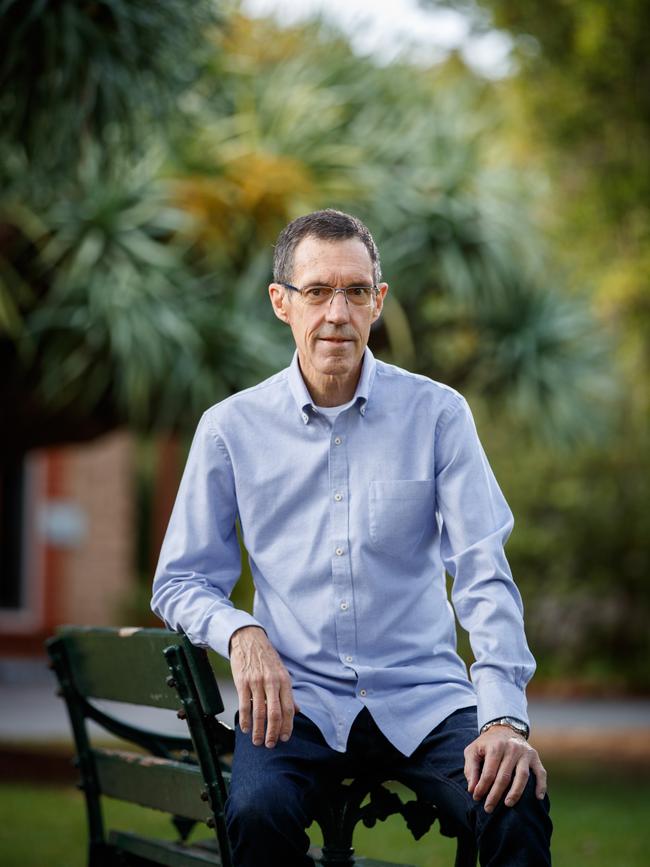
In 2005 he was sick in the lead-up to his transplant but not yet in steep decline when he was approached by former Labor political adviser, Randall Ashbourne, to represent him on a charge of abuse of public office.
Ashbourne, who died in June, was acquitted and Griffin regards it as the best case he did because Ashbourne was so clearly and thoroughly vindicated.
At the heart of the case was a claim that Ashbourne had promised a job on a board to former Labor MP Ralph Clarke if he dropped a defamation case against the Labor Attorney-General, Michael Atkinson.
Griffin had on the stand the Premier Mike Rann, Treasurer Kevin Foley and Atkinson who were held to account in a court of law, a spectacle in itself.
But it was the main witness against Ashbourne, a young lawyer, whose truth under oath – that it did “ring a bell” for her that Ashbourne had couched the Clarke appointment as something that could happen after the defamation action was dealt with, and that the two things were not dependent – that clinched it.
“The jury took 40 minutes to find him not guilty and there was something very lovely about that,” Griffin says.
He liked and was personally sorry for Ashbourne who he believes was made a scapegoat who the Labor Party sacked without discussion.
Rann and Ashbourne were close friends for 20 years and Ashbourne helped Rann secure Government by bringing an independent onside yet Rann never spoke to him again.
“I thought how cruel that a man who had been a faithful servant and friend … for 20 years could be sacked by having a letter delivered to him,” said Griffin who was too ill to attend Ashbourne’s funeral but sent his remembrances.
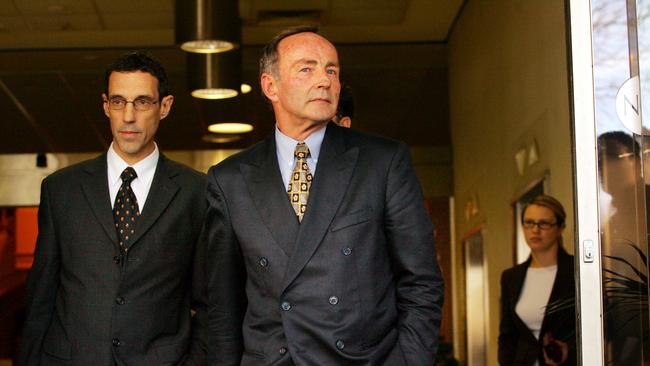
When the idea of being appointed to the District Court was first raised, he admits he was surprised and unsure, not the least because the approach came from the Rann Government, whose key people he had grilled on the stand.
He spoke to his older brother John, who returned to Adelaide early this year with Liberal-aligned lobbyists Barton Deakin after Griffin fell ill. John Griffin told him he had to take it. “He wouldn’t listen to any arguments. He said, ‘No, you have to serve’,” Griffin says.
Life on the bench was demanding but brought more regular hours than the chaotic schedule of a criminal barrister.
“To my surprise, there were things about it that I really enjoyed,” says Griffin who was sworn in as District Court judge on August 9, 2009.
“I enjoyed trying to make everybody do the best they could, both sides, because I was shocked by how mediocre some of the lawyering was.”
He found that often the younger, nervous lawyers were more diligent and better prepared than some of the older ones.
And then it all unravelled.
In May, 2012, the Chief Judge of the District Court, Terry Worthington, said Judge Griffin had tendered his resignation.
Griffin says he became aware of allegations that he had been attending massage parlours and after the allegations became public, he could not continue in the job.
Every time he sentenced someone or dealt with someone charged with offences relating to a massage parlour, the scandal would raise its head.
“There was also the huge personal embarrassment to me about the publicity surrounding that,” he says. “I thought the best option for me was to resign.”
To escape the media on his doorstep, he stayed at a friend’s house at Middleton while his son was protected at his primary school.
For someone as private as Griffin, the humiliation was excruciating.
He was off work for about four months, then went slowly back to the Bar.
His colleagues welcomed him back to Wright Chambers and supported him emotionally and professionally.
Griffin found that people in the legal profession were kind but every time someone raised it, even to say they understood and offered reassurance, he relived the embarrassment again.
“If there was ill feeling, people were kind enough not to say it to my face,” he says.
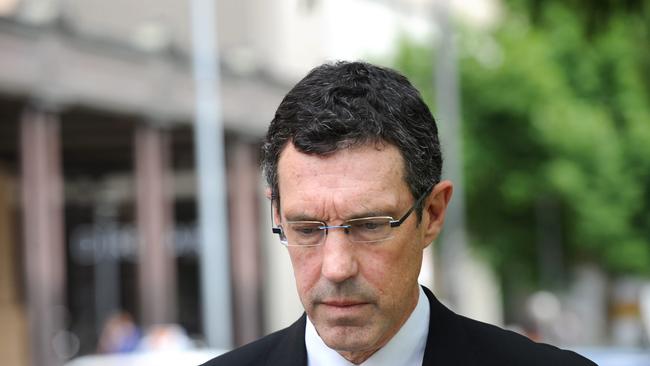
The briefs began coming in, some from clients who thought that because he had sat in judgment in the District Court, he had additional insight.
He worked interstate, in Brisbane and in Melbourne, and in 2013 went onto the Eastman Inquiry, as senior counsel for David Eastman, which examined Eastman’s conviction for the murder of Canberra police chief, Colin Winchester.
The inquiry resulted in the murder conviction being quashed, although by then Eastman had spent 19 years in prison. (Eastman in October was awarded $7 million for his wrongful conviction.)
In 2017, he represented the interests of the 10 patients underdosed in the leukaemia chemotherapy scandal, including their chief advocate Andrew Knox, in the Coroner’s Inquest that lasted almost two years.
Before Griffin fell ill again late last year, there was nothing in particular to alarm him other than slight weight loss and loss of fitness. He was used to kicking a football on weekends with Matthew but found he couldn’t run two laps of Kensington Oval without stopping. “I thought how pathetic am I? I’ve become so unfit. So I went to a few more exercise classes thinking it would improve,” he says.
One day in November he was in court but at lunchtime came home feeling unwell.
He went to bed with a temperature and sweats and in the morning took himself to Flinders. When he was diagnosed with abscesses on his liver, he thought it didn’t sound good and it was clear the infection was at a dangerous level that could trigger cardiac arrest.
But he was assured that an additional spot on the liver that appeared abscessed was unlikely to be a tumour, something he hadn’t even thought of.
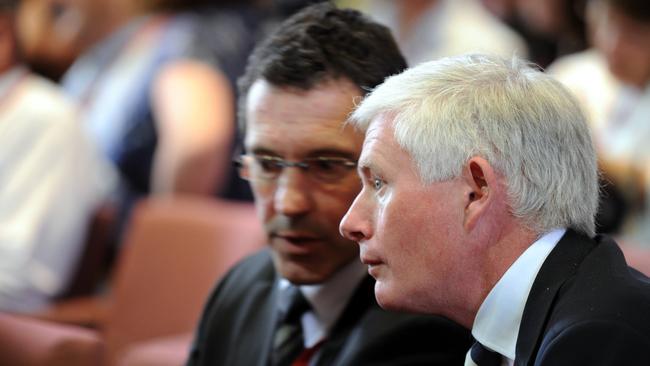
In late November, 2018, he was still in hospital being treated for the infection when the doctors told him it was an inoperable tumour that could not be fixed with chemotherapy or radiation treatment. Patients with this condition usually lasted for 12 to 18 months, if they were lucky. More infections though could send him downhill very quickly. After a few minutes the doctors left.
“First person back in the room was the nurse, a lovely woman called Ellie who used to be a roller derby chick and she’s great; she doesn’t say much but she was straight back in to check on me,” Griffin says. “You dissolve into tears and think, ‘Wow. This is it. November 27 you get this and I’ll be lucky to see the end of 2019 with Matthew about to start Year 12’.”
His marriage to Leslee was over but together they decided not to tell Matthew until he was back from a school trip to Cambodia, and then waited, understandably, until just after Christmas.
He has had plenty of time to be philosophical about life since.
Griffin’s father died from secondary liver cancer when he was 48 and Griffin was in his final year of Law School. When Griffin was 48, he had been on the transplant list hoping for a new liver before he, too, died. “I thought, ‘Shit, surely I’m not going to peg out at the same age as my old man,” he says. “Luckily I didn’t.”
He has had nearly 14 years more and for that is hugely grateful. Living with a transplanted liver never gave him a sense of spiritual connection that some donor recipients feel but he says it was humbling because it was a gift that came with the knowledge that another family was grieving. “You are pleased you have been the recipient of this gift and you’ve made a great recovery but it’s not the same sort of joy you get from a complete windfall because you know that someone else has paid an enormous price,” he says. There wasn’t a day when he hadn’t thought of the donor and his or her family, and the gift he had received.
He is not angry or self-pitying. He has seen Matthew grow from being a little boy to a young man and has appreciated every moment. He was an older father anyway, which gave him a different perspective. Even during the Snowtown trial, he would finish a day in court then come home in time for his son’s bath and dinner.
“I’d see him every evening at the normal time and read the book, eat, whatever, then I’d go back to work and work from eight until one then up for the morning routine,” he says. “Leslee did the lion’s share but I’d march him up and down the long hallway at home and get him to sleep.”
The diagnosis of a tumour on the liver was followed by aggressive treatment that included wearing an antibiotic pump that was replaced every 24 hours, and a liver drain to help maintain function.
He has had setbacks including further infections, radiotherapy and chemotherapy that damaged him so much he had to stop.
“After completing four or five weeks, it was made pretty clear it couldn’t go on,” he says.
“It wasn’t worth it in terms of my quality of life.” He told close friends about the diagnosis, and after the tears had flowed he told them the best thing they could do was to ignore his illness and treat him as normal. He continued to work until October although did not risk starting lengthy trials that he might suddenly have to abandon and inconvenience the client and courts.
Griffin says he has been overwhelmed with the care and compassion Leslee has shown, visiting him in hospital, bringing food, taking him to appointments. When he was released from hospital, she insisted he live with them. “She is deeply concerned about Matthew and how he is going to cope,” Griffin says. “I have nothing but love and respect and admiration for her.”
Faced with the prospect of fulfilling any end-of-life wishes or dreams, he stayed in Adelaide to see as much of Matthew as he could. He has also taken the time to make sure all necessary arrangements have been put in place so Leslee and Matthew won’t have to worry financially when he goes.
“I don’t want her and Matthew to be dealing with the uncertainties; chasing around insurance companies or superannuation policies after the death happens, I don’t want that,” he says. “I can’t say it’s a pleasant experience but I derive a certain level of comfort from doing things.”
His relationship with Matthew has matured, although Griffin says he wants his son to have a father, not a friend. They talk about what’s coming a little but not a lot and they have made a pact to extract the best out of the time together that they have left. Early in the year, Matthew was particularly upset at the thought of waking up one day and his father not being there.
Griffin spoke with him and the pair agreed to make a deal.
“If all we think about is the ugly day, it’s going to ruin every day between now and then, so although we can’t be silly and pretend things won’t happen, let’s put it as far back in our minds as possible,” he told Matthew. “And you and I will enjoy as many days as we can every day we can and I’ll do my absolute best to make sure the ugly day is as far away as possible. That’s the deal.”
Mark Griffin invited me to interview him to write this piece. He is a private person by nature but I had come to know him during the Randall Ashbourne trial and the Coroner’s inquest into the leukaemia chemotherapy underdosing case.
Originally published as Defending the Snowtown monsters: Mark Griffin QC reflects
